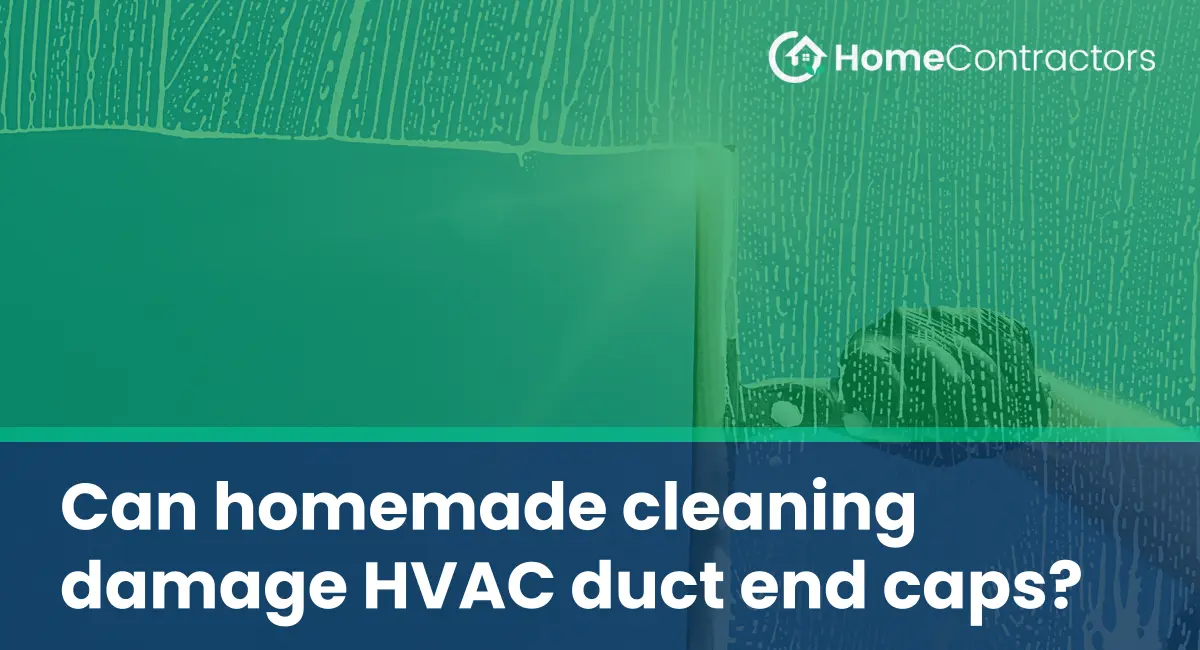Cleaning the HVAC (Heating, Ventilation, and Air Conditioning) system in our homes is crucial for ensuring indoor air quality and maintaining the efficiency of the system. While hiring professionals is recommended for thorough cleaning, many homeowners may choose to clean their HVAC ducts themselves. However, there is a concern that homemade cleaning methods could potentially damage the HVAC duct end caps. In this article, we will explore whether or not homemade cleaning can cause harm to these essential components of the HVAC system.
Understanding HVAC Duct End Caps:
Before diving into the potential damage caused by homemade cleaning, it’s important to understand the role of HVAC duct end caps. These caps are installed at the end of each HVAC duct to prevent the escape of air and ensure that it is directed into the desired space. They provide a seal, preventing air leakage and maintaining the system’s efficiency.
Potential Risks of Homemade Cleaning:
While it is possible to clean HVAC ducts at home, it is essential to be aware of the potential risks involved in doing so. Some homemade cleaning methods can potentially damage the HVAC duct end caps. These risks include:
1. Use of Harsh Chemicals:
Certain cleaning agents or chemicals that homeowners might use could be too strong for the delicate material of the duct end caps. Harsh chemicals may cause cracks, disintegration, or discoloration, compromising the functionality and aesthetics of the end caps.
2. Inappropriate Cleaning Tools:
Using improper tools for cleaning HVAC ducts can also lead to damage. Hard-bristled brushes or metal tools might scratch or dent the end caps, affecting their ability to create an airtight seal.
3. Excessive Force:
When attempting DIY cleaning, homeowners may unknowingly apply excessive force while scrubbing or cleaning around the end caps. This force could lead to cracks or breakages in the end caps, rendering them inefficient or even unusable.
Preventing Damage to HVAC Duct End Caps:
To avoid damaging the HVAC duct end caps during homemade cleaning, several precautions can be taken:
1. Read Manufacturer Guidelines:
Before starting any DIY cleaning venture, read the manufacturer’s guidelines for your HVAC system. This will provide specific recommendations on how to clean the ductwork and any cautions that must be followed to prevent damage to vital components like the end caps.
2. Use Mild Cleaning Agents:
Avoid using harsh chemicals, such as bleach or ammonia-based cleaners, that can harm the end caps. Instead, opt for mild, non-toxic cleaning agents specifically designed for HVAC system cleaning. These will effectively clean without causing damage.
3. Select Soft Cleaning Tools:
Choose soft-bristled brushes, microfiber cloths, or vacuum attachments approved for HVAC system cleaning. These tools are less likely to scratch or dent the end caps. Avoid using sharp or abrasive objects that may cause unintended damage.
4. Gentle Cleaning Techniques:
Apply gentle and consistent pressure while cleaning. Excessive force is unnecessary and increases the risk of damaging the end caps. Use circular motions or gentle strokes to clean, ensuring that the end caps are not subjected to unnecessary stress.
5. Regular Maintenance by Professionals:
While DIY cleaning can be helpful, it is important to schedule regular professional HVAC maintenance. Trained technicians can inspect the HVAC duct end caps, clean the system thoroughly, and identify potential issues before they become major problems. This ensures proper cleaning without risking damage to the end caps or other components.
Homemade cleaning of HVAC ducts is a common practice among homeowners. While it can be beneficial, there is a risk of damage to vital components such as the end caps. By following manufacturer guidelines, using appropriate cleaning agents and tools, and exercising caution during cleaning, homeowners can successfully clean their HVAC ducts without causing harm to the end caps. If unsure about the cleaning process or maintenance requirements, it is always recommended to seek professional assistance to ensure the longevity and efficiency of the HVAC system.
